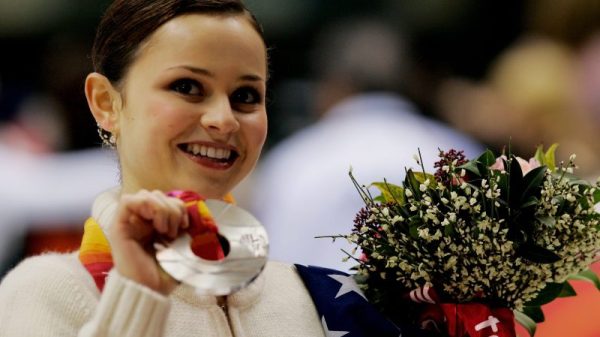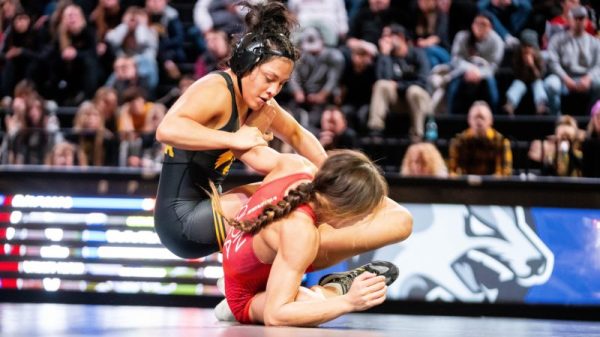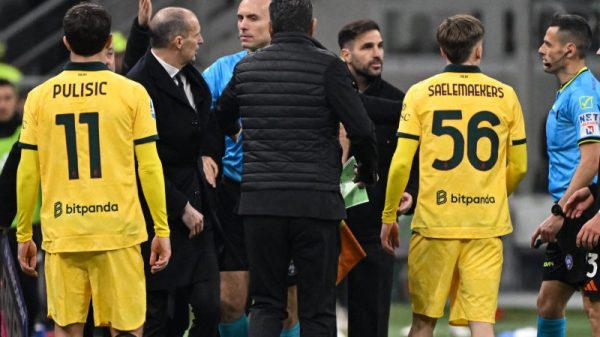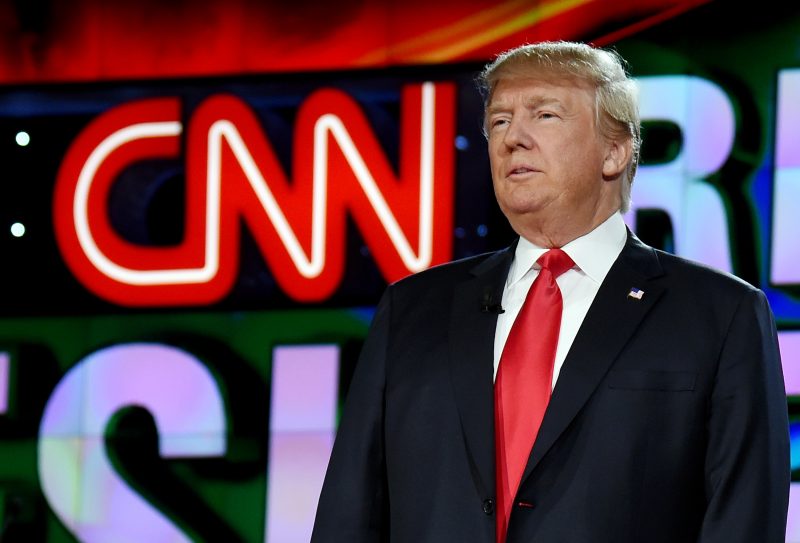After Donald Trump took out a blistering full-page newspaper ad to say the United States should stop paying to defend countries that can do it themselves, Larry King suggested on his CNN show that his friend and frequent guest could be “eyeing the White House.”
It was September 1987, and Trump was scheduled deliver a speech in New Hampshire that would have hundreds of people in attendance clamoring for the 41-year-old real estate mogul to run for president the next year. On CNN’s highest-rated show, King noted that Trump was “sounding more like a politician these days than America’s most grandiose and controversial builder.” The CNN host played up Trump going to New Hampshire, saying that “people are going to presume things” just because Trump set foot in the state.
“Well, they can presume whatever they want,” Trump replied. “I have no intention of running for president.” He quickly shifted his attention and told CNN viewers that the greatness of the United States was in danger: “I’d like a point to get across that we have a great country, but it’s not going to be great for long if we’re going to continue to lose $200 billion a year.”
Trump did not run for president in 1988, but the CNN appearance helped cement an on-air relationship that spanned decades between the future president and what was once his preferred cable news network.
After not appearing on CNN for roughly seven years, Trump will return to the network on Wednesday for a two-hour town hall in early-voting New Hampshire. The town hall comes one day after a civil jury found the former president liable for sexual abuse and defamation of writer E. Jean Carroll. Trump, who is running for president again in 2024, also faces a number of legal cases, including a criminal indictment charging falsification of business records in New York, and investigations into his handling of classified material and efforts to block Joe Biden’s victory in the 2020 presidential election.
CNN has faced criticism since announcing the town hall with Trump, with many on Twitter using #LookingAtYouCNN to voice their displeasure over hosting Trump one day after he was ordered to pay Carroll $5 million in damages. A CNN spokesperson defended the town hall in a statement to The Washington Post, saying: “President Trump is the Republican front-runner, and our job despite his unique circumstances is to do what we do best. Ask tough questions, follow up, and hold him accountable to give voters the information they need to sort through their choices.”
“That is our role and our responsibility,” the spokesperson said.
Still, the town hall is the latest in a long, winding and sometimes weird relationship between Trump and CNN.
Ahead of Wednesday’s event, here’s a look at some of the moments that have defined Trump’s relationship with CNN.
In 1987, King asked Trump whether he still identified as a Republican. While Trump’s newspaper ad lashing out against the country’s foreign policy strategy did not name President Ronald Reagan or his administration, the Republican president was still in office at the time.
Trump said he was still a Republican but that he didn’t see a run for office in his future. He told King he decided to speak out on foreign policy because the United States was being played, foreshadowing rhetoric he would use for decades.
“I was tired, and I think a lot of people are tired, of watching other countries ripping off the United States,” he said. “This is a great country. They laugh at us behind our backs. They laugh at us because of our own stupidity and the leaders.”
After George H.W. Bush secured the Republican presidential nomination in 1988, Trump was interviewed by King during that year’s Republican National Convention in New Orleans. King posed a hypothetical question to Trump, asking whether he would have been Bush’s running mate if he had been asked.
“Would I have done it? I probably would not have done it because I enjoy, I really love what I am doing,” Trump replied.
King then asked Trump whom he identifies with the most.
“The people that I do best with are the people that drive the taxis,” he said. “Wealthy people don’t like me because I’m competing against them all the time, and they don’t like me, and I like to win.”
So, King asked, why was Trump a Republican?
“I have no idea,” Trump said, smiling.
While the initial Trump appearances on CNN were cordial, his March 29, 1990, interview with the network prompted him to walk out in the middle of the production.
Trump acknowledged the criticism that he was thin-skinned — “I’ve been thin-skinned from Day One” — but defended his aggressive responses to pundits and journalists who wrote critically about him.
“When people say something false, I attack those people,” Trump said in a strong New York accent to CNN’s Charles Feldman. “The news gets away with murder. The news media, they get away with murder.”
But when he was asked about the financial stability of his casinos in Atlantic City, Trump started questioning Feldman’s reporting.
“What was inaccurate?” the journalist asked.
“I thought your demeanor was inaccurate, and I thought that the questions you were posing to people in my organization were inaccurate and false and unfair,” Trump said.
Feldman reminded Trump that questions, by definition, can’t be false. This caused the real estate mogul to grow increasingly upset to the point that he took off his microphone and walked out.
“Do the interview with somebody else,” he said.
In a wide-ranging interview on “Larry King Live” on Oct. 7, 1999, Trump was asked about his views on gun control. The interview came months after a mass shooting at a high school in Columbine, Colo., killed 13 and brought the topic to the forefront of the national conversation.
Trump argued that other countries “don’t have as many bad guys” as the United States. King asked whether Trump agreed with the National Rifle Association and opposed gun-control laws.
“I don’t agree entirely, but I do agree that you should have the power to have a weapon because other people do and other people are not necessarily the nicest people in the world,” Trump said. He added, referring to guns: “There’s nothing I like better than nobody has them. But that’s not going to happen, Larry.”
Later in the conversation, King mentioned to CNN viewers that Trump was weighing leaving his Republican status behind to run for president as a candidate of the Reform Party, the centrist political party founded by Ross Perot. When asked who would be his pick for vice president, Trump didn’t hesitate to name TV host and mogul Oprah Winfrey.
“Oprah would always be my first choice,” he said. “I don’t know if she’d ever do it.”
She didn’t — and neither did Trump.
Trump always seemed to feel most comfortable on King’s show. This was evident in 2004 when a caller from Georgetown University had a pressing question for Trump: “Is your hair real?”
“One of the most asked questions in America,” King responded.
At this point, Trump, then the host and executive producer of “The Apprentice,” flipped up the front part of his hair covering his forehead to prove it was not a toupee.
“Will you please inform the public?” Trump said, playing along with the joke. King confirmed: “It is not a toupee.”
King asked Trump to lean forward and proceeded to caress Trump’s hair on national television.
“Don’t mess it up too much,” Trump said.
He then turned his attention to the success of “The Apprentice.”
“Everything has gotten great reviews, except for one thing: my hair,” Trump said, adding that it “gets bad reviews.”
It was among the last times Trump was interviewed by King, whose live show on CNN ended in 2010. Years later, King was critical of the network’s coverage of Trump the politician. After the Trump White House revoked the credentials of correspondent Jim Acosta following a tense exchange with the president at a news conference, King told RT America in 2018 that CNN had gone too far in covering the man who had been a frequent guest on his show.
“CNN stopped doing news a long time ago. They do Trump,” said King, who died in 2021 at 87. “When CNN started covering Trump — they were the first — they covered every speech he made, and then they made Trump the story. So, Trump is the story in America.”



























